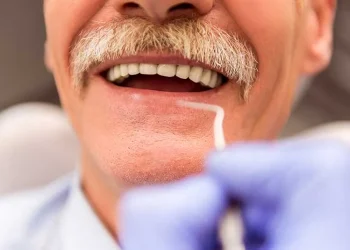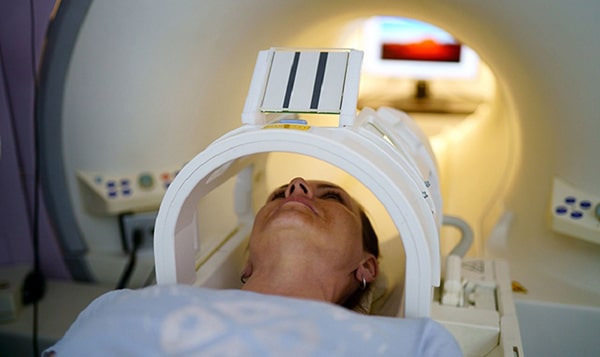Contents
Do Dental Implants Affect MRI Scans?
MRI is a safe and non-invasive procedure that can help diagnose a variety of medical conditions. However, people with dental implants may have concerns about whether they can safely undergo an MRI.
What is MRI?
Magnetic resonance imaging (MRI) is a non-invasive diagnostic technique that has revolutionized the practice of medicine in recent years. The technology uses a powerful magnetic field and radio waves to produce highly detailed images of the body’s internal structures, providing clinicians with a wealth of information about a patient’s health. This has made MRI a popular choice for diagnosing a wide range of medical conditions, including cancer, neurological disorders, and joint injuries.
In fact, MRI has proven to be particularly useful for detecting brain and spinal cord abnormalities, including tumors, multiple sclerosis, and stroke. These images can provide clinicians with valuable information about the size, location, and nature of these abnormalities, allowing them to develop more effective treatment plans for their patients.
Moreover, MRI is a completely non-invasive procedure, which means that patients do not need to undergo any surgical procedures or have any needles inserted into their bodies. This makes it a much more comfortable and less stressful experience for patients, particularly those who may be anxious about undergoing medical procedures.
What are Dental Implants?
Dental implants are a highly recommended surgical procedure for individuals with missing teeth. The procedure entails the implantation of an artificial tooth root into the jawbone to provide support for a dental prosthesis like a crown, bridge, or denture. The process is relatively simple but requires skillful execution. Firstly, a small titanium post is carefully inserted into the jaw, which serves as the root of the tooth. After the procedure, the patient must follow up with their dentist to ensure the healing process is progressing as expected. The recovery time is relatively short, and once the post fuses with the surrounding bone tissue, the patient can ultimately enjoy a stable foundation for the prosthesis.
In comparison to other dental procedures, dental implants have numerous advantages. They are incredibly durable, which means they can last for several years without replacement. Additionally, they have a natural appearance that blends seamlessly with the surrounding teeth, restoring the patient’s confidence in their smile. Another advantage is their ability to improve overall oral health. For example, dental implants can help prevent bone loss in the jaw, which is common when teeth are missing. This is because the implant stimulates the jawbone, which facilitates bone growth and ensures that the jaw remains healthy for years to come.
Will Dental Implants Affect the MRI Procedure?
Dental implants are typically composed of biocompatible materials, such as titanium, ceramic, or zirconia, which are able to integrate with the surrounding bone tissue. These materials are also non-magnetic, which means that they are not affected by the magnetic field generated by an MRI machine. However, even though the implant itself is not affected by the magnetic field, it can sometimes cause artifacts or distortions in the images. These artifacts can arise due to the interaction between the magnetic field and the metal components of the implant, as well as the presence of any residual cement or metallic restorations in the mouth.
It is important to inform your radiologist that you have dental implants prior to undergoing an MRI scan. This will allow them to take this into account when interpreting the results, as well as to adjust the protocol accordingly. Radiologists can use various strategies to mitigate the effect of the dental implant on the images, such as using special sequences or adjusting the scanning parameters. They may also request additional imaging studies, such as a CT scan or a panoramic radiograph, to obtain a clearer view of the implant and the surrounding tissues.
In summary, while dental implants themselves are not affected by MRIs due to their non-magnetic properties, they can still cause image artifacts or distortions that may affect the accuracy of the results. Therefore, it is crucial to inform your radiologist about your dental implants and any other oral restorations you may have, so that they can provide you with the best possible care.
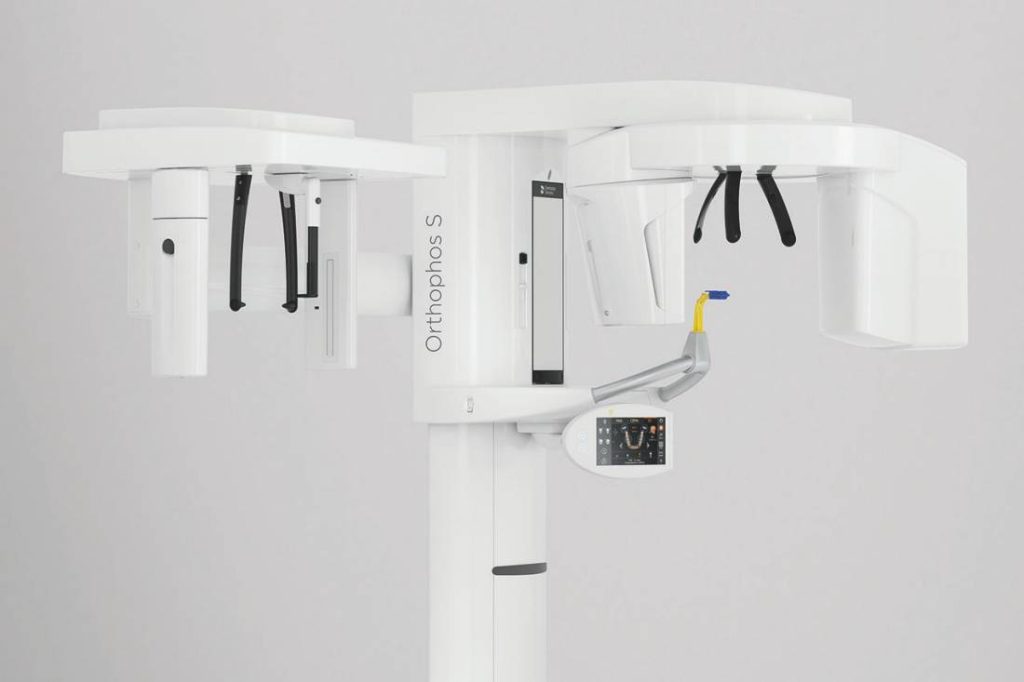
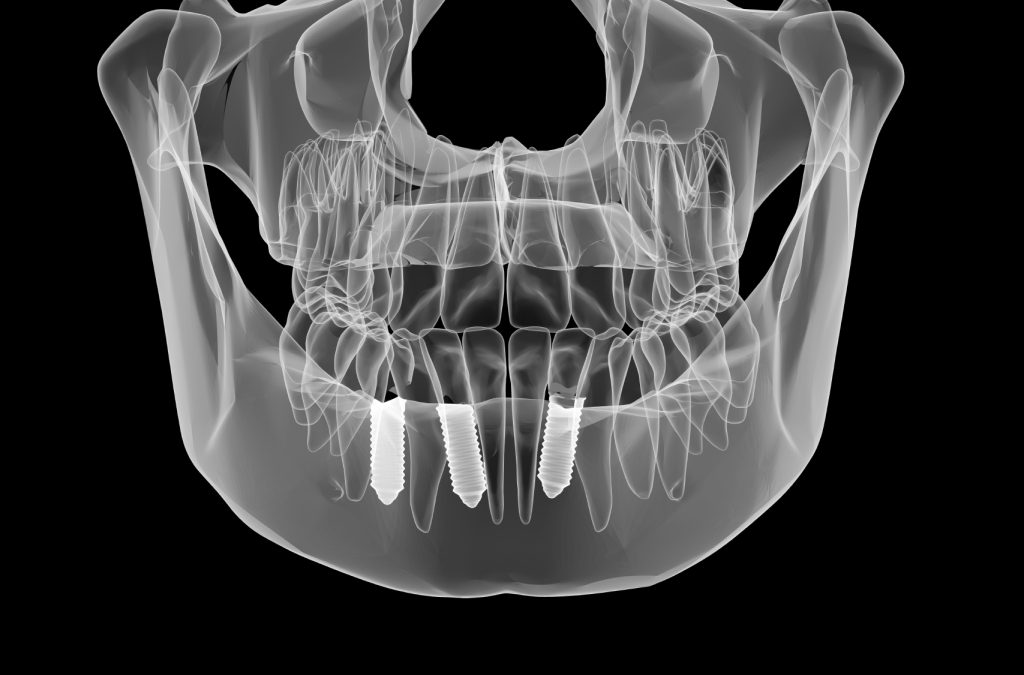
When It is Unable to Have an MRI with Dental Implants
When it comes to dental implants and MRI, it’s important to be aware that not all types of implants are considered safe for use with MRI machines due to their composition. Specifically, implants made of magnetic materials may pose a risk during an MRI exam. This is because the strong magnetic field produced by the MRI machine can cause the implant to move or heat up, potentially causing damage to surrounding tissue.
However, it’s worth noting that there are alternative imaging techniques that can be used in these cases. For example, a computed tomography (CT) scan or ultrasound may be recommended instead of an MRI. These imaging modalities can provide similar information to an MRI without the risk of harm to the patient or their implant.
It’s important to discuss any concerns you may have regarding dental implants and MRI with your dentist or healthcare provider. They can help determine if an MRI is safe for you and recommend alternative imaging options if necessary.
Furthermore, it is important to note that the location of the implant in the mouth plays a crucial role in determining the safety of MRI. This is because certain dental implants may be situated in close proximity to highly sensitive structures within the oral cavity, such as the optic nerve. When such structures are exposed to the strong magnetic fields generated during an MRI scan, it can potentially pose a risk to the patient. Therefore, it is imperative to carefully assess the location of the implant and the potential risks associated with the procedure prior to undergoing an MRI scan. Additionally, it is important to discuss any concerns or questions with a qualified healthcare professional, who can provide guidance and support throughout the process.
Precautions to Take
If you have dental implants and need an MRI, it’s important to keep in mind some considerations to ensure that the procedure is safe and accurate. Besides informing your dentist and radiologist that you have dental implants, which will allow them to take any necessary precautions and determine whether an MRI is the best imaging technique for you, there are other important things to consider.
One of the precautions that healthcare providers may need to take is adjusting the settings of the MRI machine to reduce the risk of heating or dislodging the implants. Additionally, they may need to use a special type of MRI machine that is specifically designed for patients with dental implants. In some cases, a CT scan may be recommended instead of an MRI.
CT scanners use X-rays instead of magnetic fields, which means that they are generally safe for people with dental implants. However, it is important to keep in mind that CT scans do involve exposure to ionizing radiation, which can be harmful if you receive too many of them. Your doctor will carefully weigh the benefits and risks of each imaging technique to determine which option is best for you based on your specific circumstances and medical history.
Taking Care of Your Dental Implants after an MRI
Follow Dentist’s Instructions
It’s important to follow your dentist’s instructions carefully. This may include avoiding certain foods and drinks, taking prescribed medication, and keeping the implant area clean. Your dentist may also recommend that you avoid chewing on the implant area for a few days after the procedure to allow it to heal properly.
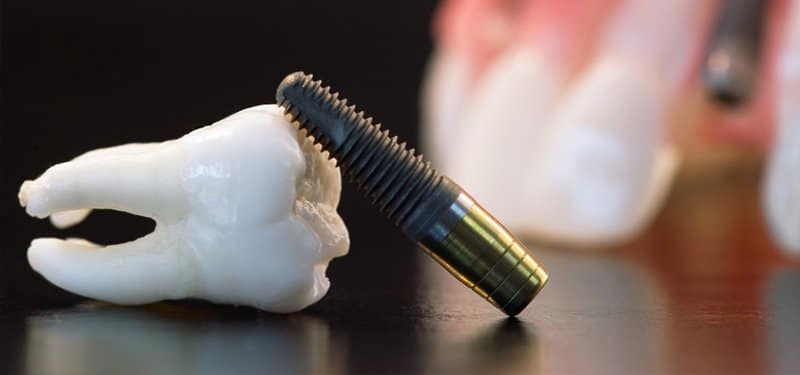
Maintain Good Oral Hygiene
Proper oral hygiene is important for everyone, but it’s especially crucial for people with dental implants. It’s important to continue to brush and floss regularly to prevent infection and promote healing. Be sure to use a soft-bristled toothbrush and non-abrasive toothpaste, and avoid brushing too hard around the implant area.
Your dentist may also recommend that you use an antibacterial mouthwash or rinse to help prevent infections. Be sure to follow the instructions on the product carefully and avoid using any mouthwash that contains alcohol, as this can irritate the implant area.
Regular Check-ups
It cannot be overstated how crucial it is to keep up with regular dental check-ups after getting dental implants. Not only do these check-ups help ensure that your implants are functioning properly, but they also play a vital role in detecting any issues early on. Beyond that, your dentist can also provide you with additional care instructions that are tailored specifically to your needs, which can help prolong the life of your implants.
During your regular check-ups, your dentist will carefully examine your implants and surrounding tissues to ensure that everything is in good health. If any issues are detected, your dentist can provide you with a treatment plan that is designed to address the problem quickly and effectively. Additionally, your dentist may perform a deep cleaning of your implants to remove any buildup that may have occurred since your last visit. This deep cleaning can help prevent infection and improve the overall health of your gums and teeth.
It is important to keep in mind that even if you feel that your implants are functioning well, it is still essential to schedule regular check-ups with your dentist. By doing so, you can stay ahead of any potential issues and ensure that your implants continue to provide you with a healthy, beautiful smile for years to come.
Conclusion
In conclusion, people with dental implants may be able to undergo an MRI, but they should inform their dentist and radiologist of their implants and take precautions to ensure that the procedure is safe and accurate. If an MRI is not recommended, a CT scan may be a safer alternative. By working closely with your healthcare providers, you can ensure that you receive the best possible imaging care while protecting your dental implants.


